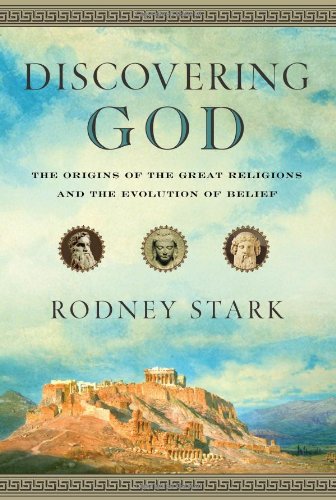

Most ebook files are in PDF format, so you can easily read them using various software such as Foxit Reader or directly on the Google Chrome browser.
Some ebook files are released by publishers in other formats such as .awz, .mobi, .epub, .fb2, etc. You may need to install specific software to read these formats on mobile/PC, such as Calibre.
Please read the tutorial at this link: https://ebookbell.com/faq
We offer FREE conversion to the popular formats you request; however, this may take some time. Therefore, right after payment, please email us, and we will try to provide the service as quickly as possible.
For some exceptional file formats or broken links (if any), please refrain from opening any disputes. Instead, email us first, and we will try to assist within a maximum of 6 hours.
EbookBell Team

0.0
0 reviewsDiscovering God is a monumental history of the origins of the great religions from the Stone Age to the Modern Age. Sociologist Rodney Stark surveys the birth and growth of religions around the world—from the prehistoric era of primal beliefs; the history of the pyramids found in Iraq, Egypt, Mexico, and Cambodia; and the great "Axial Age" of Plato, Zoroaster, Confucius, and the Buddha, to the modern Christian missions and the global spread of Islam. He argues for a free-market theory of religion and for the controversial thesis that under the best, unimpeded conditions, the true, most authentic religions will survive and thrive. Among his many conclusions:
Most people believe in the existence of God (or Gods), and this has apparently been so throughout human history. Many modern biologists and psychologists reject these spiritual ideas, especially those about the existence of God, as delusional. They claim that religion is a primitive survival mechanism that should have been discarded as humans evolved beyond the stage where belief in God served any useful purpose—that in modern societies, faith is a misleading crutch and an impediment to reason. In Discovering God, award-winning sociologist Rodney Stark responds to this position, arguing that it is our capacity to understand God that has evolved—that humans now know much more about God than they did in ancient times.